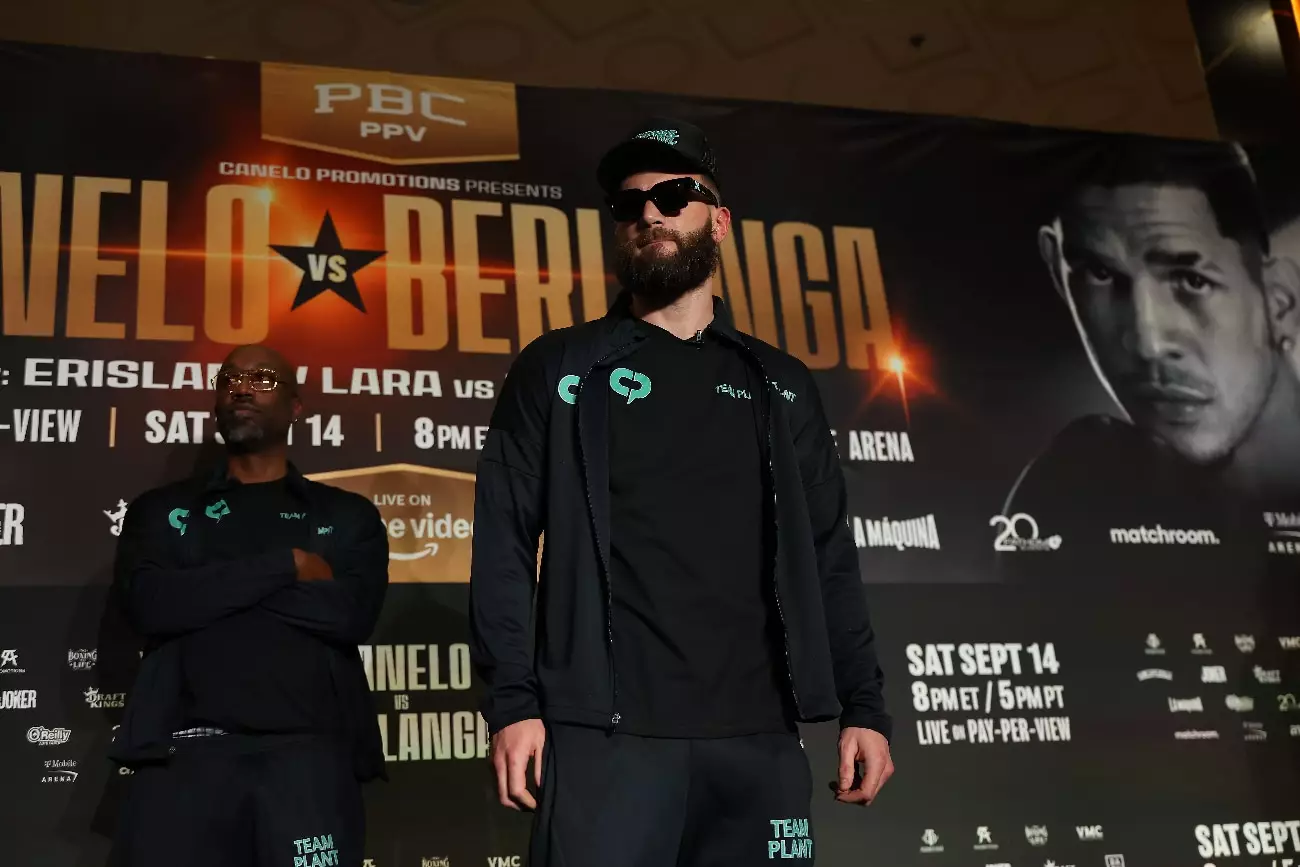In the lead-up to the fight for the WBA interim super middleweight title, trainer Stephen Edwards expressed strong sentiments regarding Trevor McCumby’s long-awaited decision to take on Caleb Plant. With a staggering 14-year wait before stepping into the ring against a high-profile opponent, Edwards suggests that Plant should feel disrespected and slighted. This delay raises questions about McCumby’s readiness for such a significant challenge, bringing into focus the unusual dynamics of boxing where timing often dictates success.
Edwards argues that at 31 years of age, McCumby has wasted valuable years in the ring without properly testing himself against capable adversaries. His existing record, boasting 28 wins with 21 knockouts, would typically instill confidence, but the lack of high-caliber opponents casts a shadow over his achievements. It is evident that McCumby’s past choices have now left him at a disadvantage as he prepares to face Plant, who has faced formidable opponents throughout his career.
For Plant, whose professional record stands at 22 wins and 2 losses, this matchup against McCumby presents an opportunity that may align well with his aspirations. The 32-year-old fighter seeks a rematch with Canelo Alvarez, aiming to vie for supremacy in the super middleweight division. Edwards insightfully posits that choosing McCumby, rather than more formidable foes like Christian Mbilli or Diego Pacheco, benefits Plant by providing him an easier path to reclaiming title contention. This fight represents not just a moment of redemption for Plant but also a strategic maneuver in his broader career plan.
However, Plant’s recent performances have not been encouraging. With a 1-2 record in his last three bouts—with his sole victory against a fading Anthony Dirrell—his career trajectory remains uncertain. The potential risk of encountering heightened competition looms heavy; defeating an inexperienced fighter like McCumby may yield a sense of victory, but does little to strengthen Plant’s standing against elite competition.
Edwards touts Plant’s history of facing tougher opponents as a mark of his potential superiority in the ring against McCumby. While it is accurate to highlight Plant’s experience against high-level contenders, Edwards neglects to mention that with that experience comes a record of two significant losses to high-caliber fighters: Canelo Alvarez and David Benavidez. The essence of experience is not just in quantity but also in the quality of outcomes, and Plant’s defeats lead to pivotal questions about his ability to succeed in high-stakes matches.
Furthermore, the notion that Plant should derive confidence from a lackluster opponent is paradoxical. While McCumby’s knockout ratio may be impressive, it’s the caliber of the boxers faced that truly defines a fighter. It would be disingenuous to equate McCumby’s untested mettle to genuine readiness for a significant bout.
As the fight night approaches, anticipation grows regarding what this juxtaposition of an experienced fighter up against one yet to fully prove himself will reveal. For Plant, it is an opportunity to solidify his place as a contender; for McCumby, it’s a moment to finally validate his long-discussed potential. The stakes are high, and the outcomes uncertain, setting the stage for a match that could reshape careers. Ultimately, both fighters stand at a crossroad—one in search of redemption, and the other seeking validation—a narrative that captures the true essence of boxing.

